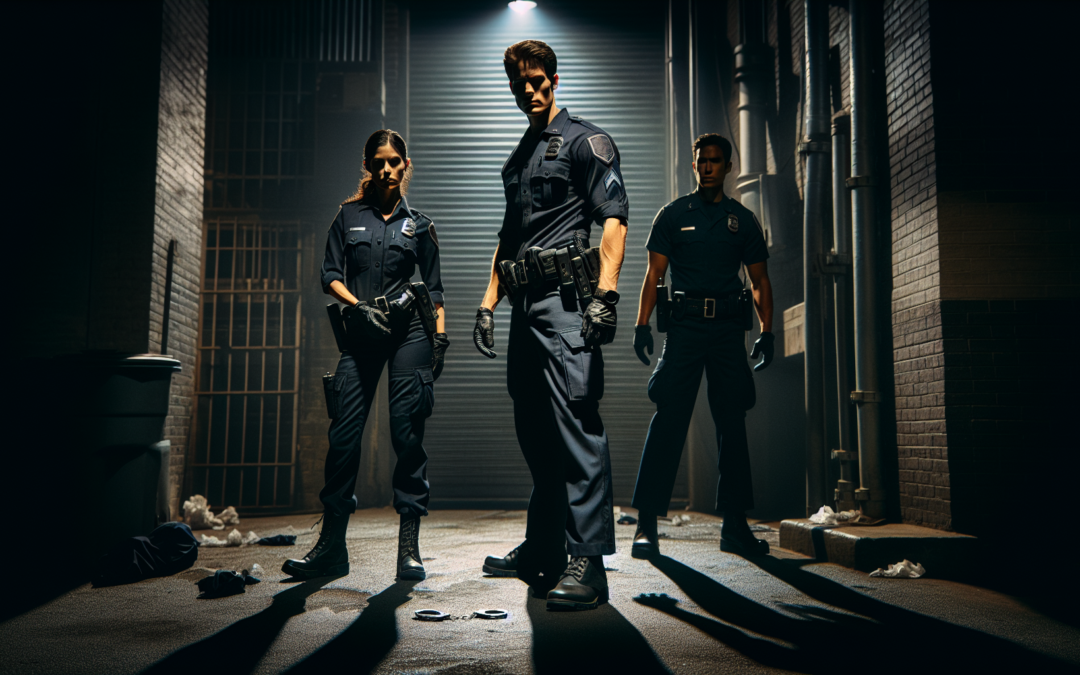The Sting of Silence: Law Enforcement’s Ever-Present Dilemma
As modern society grapples with monumental political, social, and cultural shifts, few public servants stand more front-and-center than law enforcement officers. They are the pillars that hold up the grand edifice of democracy, committed to defending your rights even when opinions clash and crowds rage.
In this particular episode of The John Ligato Show, such sights are standard: law enforcement officials strategically positioned against an explosive backdrop of passionate activists and tense circumstances. It is a scene repeated across city landscapes in America today.
For the policeman or woman, the landscape is drilled into their consciousness through rigorous training and vivid experience: secure the scene, ensure public safety, respect the First Amendment. As simple as these steps may sound, the interplay between them forms an intricate web the officer must navigate in real-time.
The Perpetual Tightrope Walk: Balancing Rights and Risks
An officer shields the people’s right to assemble and express dissent. All Americans are vested with First Amendment rights, freedoms that courses through the constitution like a lifeblood. However, not every gathering remains peaceful, and police forces finding themselves corseted by duty face imminent decisions.
Consider this juxtaposition: on the one hand, a peaceful march advocating against social injustice. On the other, masked individuals emerge, aiming to disrupt. With each pulsing second, the environment morphs. The officer’s heartbeat synchronizes with an urgency, knowing that these five seconds will test the willpower, strength, and core values of the official straddling duty and restraint. As talk show host John Ligato articulates, “Democracy itself is at stake here.” In moments like these, officers must differentiate passive participants from active agitators while maintaining neutrality. It’s no easy task.
Public Perception and Policy Pressures
Often overshadowing the tireless work of law enforcement officials is public perception—errant, emotional, and massively consequential. Social media voices opinions louder than the reverberations of actual events, scrutinizing every move made by the uniformed individual. They oscillate between being lauded heroes and villainous enforcers within hours.
Watch the standoff captured in this episode, and it becomes clear that the officer’s goal isn’t suppression but preservation—preservation of peace, of the American Dream, and of freedom.
Policy formulation further complicates the officer’s manual. Changes from the top filter down unequally to jurisdictions nationwide, leading to mixed mandates and conflicting strategies. This flux makes enforcement fluid, depending greatly on localized versions of widespread regulatory frameworks.
The Emotional Toll on Officers
There exists a human underneath the blue. That individual wears an invisible armor of discipline and stoicism over a heart that beats daily under the relentless strain of high-stakes engagements. Hours on watch transform optimistic rookies into weary veterans.
During the critical 5-second standoff detailed by John Ligato, one could argue those five seconds condensed years of intense emotional love, strong enough to endure despite criticism, hate, and misunderstanding. You must wonder, do these officers, tasked merely with upholding the law, genuinely fathom the drastic social transformations they become unwilling pawns within?
The internal battles wrestle silently with each deployment—familial goodbyes made in silence, endless murmurs revolving around “take care of yourself,” and a lingering fear in the recesses of the law enforcement mindscape. Perhaps this human aspect trims the often dehumanized portrayal often overshadowed by public sentiment.
Behind the Badge: A Call for Empathy
Understanding police officers’ duties imbues them with an unparalleled ethos of commitment and resilience. As John Ligato presents these lived dramas in stark frames, one learns upon whom we rely when American freedoms and dreams feel besieged. They should be seen not merely as enforcers but the guardians of our everyday peace.
There lies a critical call to action: to nurture a balanced perspective—one accountable, transparent, yet inherently empathetic. Such understanding will only arise if the crucial middle ground between blind adulation and unfounded dehumanization is reconciled.
Join The Conversation
As we ruminate on these daunting truths, it becomes essential for every citizen to partake in informed discussion. Esteemed author and former FBI undercover agent John Ligato melds insight and fervent commentary to reflect, analyze, and elucidate these intricacies on his show.
Feel inspired to learn more? Follow John Ligato’s journey; subscribe to his YouTube channel for more heartfelt narratives. For closer engagements, join his community on Facebook. Together, let us rethink perspectives and foster respect towards protectors who walk a fraught tightrope in preserving freedoms we often take for granted.

Recent Comments